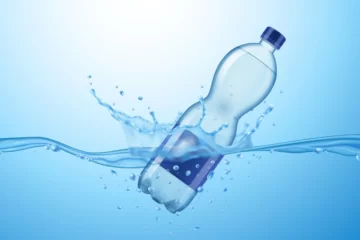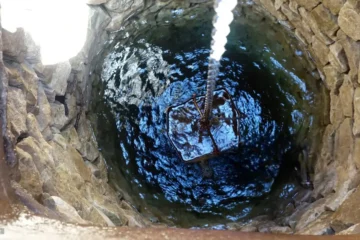Water is a fundamental element of our daily lives, and its quality can significantly influence our overall health, including the well being of our teeth. For those relying on well water as their primary water source, questions often arise about its potential impact on dental health. Is well water a friend or foe when it comes to maintaining a healthy smile?
In this blog post, we’ll break down the mysteries surrounding well water, looking at its minerals, the importance of fluoride, and potential contamination risks.
Is Well Water Bad for Your Teeth?
Well water can be good for your teeth if it has minerals like calcium and magnesium. These minerals help keep your teeth strong.
However, some well water may not have fluoride, which is important for preventing cavities. Too much fluoride, though, can cause dental fluorosis. Also, well water can sometimes have harmful bacteria or contaminants, so it’s a good idea to get it tested to make sure it’s safe for your teeth and overall health.
Characteristics of Well Water
Well water is derived from underground sources, typically from aquifers that collect water from rain and natural groundwater flow. Unlike municipal water, which is treated and regulated, well water is generally not subject to the same stringent quality controls.
As a result, the composition of well water can vary widely based on geological factors, location, and environmental conditions.
Benefits of Well Water for Teeth (If It Contains Normal Amount of Fluorides)
If fluorides typically range from 0.7 to 1.2 milligrams per liter (mg/L) or parts per million (ppm) this amount is considered normal.
Well water that contains a normal amount of fluoride can provide several benefits for teeth:
1. Cavity Prevention
Fluoride helps strengthen tooth enamel and makes it more resistant to acid attacks, reducing the risk of cavities.
2. Tooth Decay Reduction
Regular consumption of fluoride through well water can lower the incidence of tooth decay, particularly in children.
3. Natural and Cost-Effective
Well water with naturally occurring fluoride can be a cost-effective way to benefit from this mineral without the need for additional fluoride treatments or products.
4. Convenience
Unlike fluoride treatments or supplements, fluoride in well water is readily available and doesn’t require any extra effort to incorporate into one’s daily routine.
Harms of Well of Teeth (If Contains Lower or Higher Fluoride)
1. Less fluoride
If the quantity of Fluoride is less than 0.7 milligrams per liter (mg/L) it is considered low.
Low fluoride in well water (less than 0.7 mg/L) increases the risk of tooth decay, weakens tooth enamel, and raises the likelihood of gum disease. It can also result in cosmetic issues like dental fluorosis if fluoride exposure during tooth development is excessive.
2. High fluoride
If the quantity of Fluoride is higher than 1.5 milligrams per liter (mg/L) it is considered high.
High fluoride in well water (above 1.5 mg/L) can lead to dental fluorosis, causing tooth discoloration and pitting. Excessive fluoride can also lead to skeletal fluorosis, causing joint pain and limited mobility. While fluoride is essential for dental health, excessive exposure can have adverse effects on both teeth and bones.
How To Protect Your Teeth If You Drink Well Water?
Protecting your teeth when drinking well water is important, as well water can sometimes contain minerals and substances that may affect dental health. Here are some tips:
1. Regular Dental Checkups
Visit your dentist regularly for checkups and cleanings to monitor the condition of your teeth.
2. Water Testing
Have your well water tested for mineral content, especially calcium and magnesium, which can lead to hard water deposits on your teeth.
3. Water Filtration
Consider installing a water filtration system to remove impurities and minerals from your well water. A water softener can also help reduce mineral content.
4. Avoid Excessively Hot Water
If your well water is very hot, be cautious when using it for drinking or preparing beverages, as extremely hot water can weaken tooth enamel over time.
5. Consult a Dentist
If you have specific concerns about the impact of your well water on your teeth, consult your dentist for personalized advice and recommendations.
Conclusion
In conclusion, the effect of well water on teeth largely depends on its fluoride content. Well water with normal fluoride levels (0.7-1.2 mg/L) can benefit oral health by preventing cavities and reducing tooth decay. However, low fluoride levels (<0.7 mg/L) may increase the risk of dental issues, while high fluoride levels (>1.5 mg/L) can lead to dental and skeletal problems. Regular dental checkups, water testing, filtration, and dentist consultations are key to maintaining healthy teeth when consuming well water.
FAQs
Can you brush your teeth with well water?
You can brush your teeth with well water, but it’s important to ensure the water is safe to use. Have your well water tested for contaminants, including bacteria and minerals. If it meets safety standards, it can be used for dental hygiene.
Does well water have too much fluoride?
The fluoride content in well water can vary significantly by location. Some well water sources may have naturally high fluoride levels, while others may have minimal fluoride. It’s important to have your well water tested to determine the fluoride concentration in your specific area.
Can well water turn teeth yellow?
Well water itself doesn’t turn teeth yellow. However, well water with high mineral content, such as iron or manganese, can cause teeth stains over time. These stains may appear yellowish or brownish. Regular dental hygiene and professional cleanings can help mitigate such staining.
Does boiling water remove fluoride?
Boiling water does not effectively remove fluoride, in fact, it can concentrate fluoride due to water evaporation. To reduce fluoride levels, consider using a water filter designed for fluoride removal or alternative water sources.






[…] in well water isn’t usually bad for your health but it can make the water taste and smell strange. This happens when minerals or […]
[…] near a ranch or farm may result in elevated nitrate levels in your well water. Research from Penn State University has highlighted the risk of over-fertilization due to […]
[…] While well water can serve as a safe and reliable source of drinking water, there are potential disadvantages related to dental health: […]